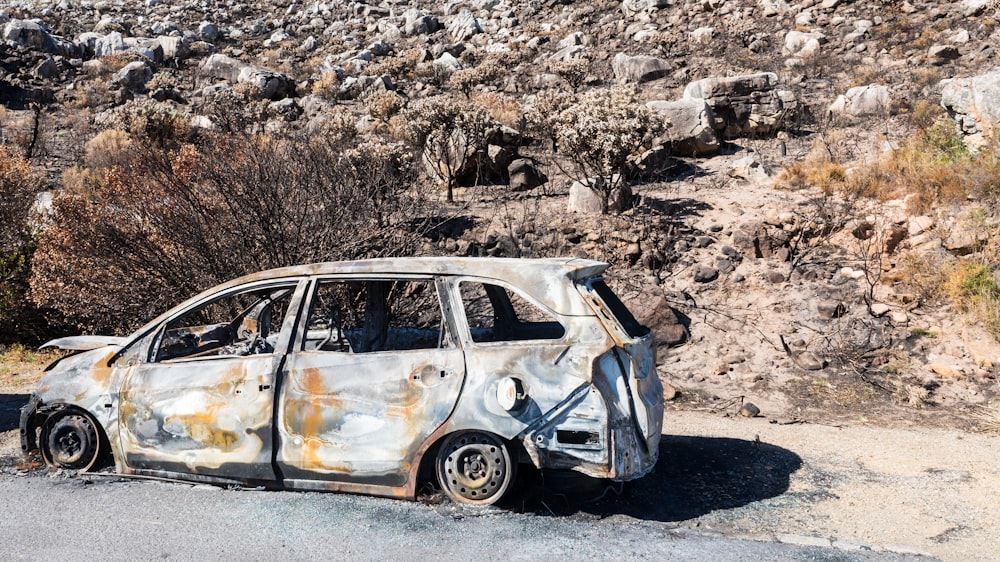Does no-fault insurance cover car damage?
Massachusetts is considered a no-fault state. This means no matter who causes a car accident, your personal injury protection (PIP) insurance will cover any injury-related expenses you incur. However, PIP insurance does not cover damage to your car.

Massachusetts is considered a no-fault state. This means no matter who causes a car accident, your personal injury protection (PIP) insurance will cover any injury-related expenses you incur. However, PIP insurance does not cover damage to your car.
What is No-Fault Car Insurance?
No-fault insurance comes into play when you are injured in a car accident. It helps cover any medical expenses, lost wages and other related costs related to the accident regardless of who was at fault. No-fault insurance is another name for PIP insurance. Massachusetts, a no-fault state, requires PIP coverage as part of your regular car insurance. In MA, you simply have to file a claim with your insurance company and they will compensate you for financial losses related to injuries from the accident. This saves you the time of disputing which driver caused the accident for smaller accidents since it does not matter in a no-fault state.
What Does No-Fault Insurance Cover?
If you were injured in a car accident, you can file a claim with your PIP insurance to get compensation for the following:
- Medical bills
- Lost income
- Replacement of services (if the injury sustained impacts your ability to do everyday tasks)
- Funeral services (in the event that someone dies)
The maximum you can get reimbursed on a PIP claim in Massachusetts is $8,000 minus the deductible you choose. It is important to remember that these costs do not cover any minor injuries or medical expenses that are under the pain and suffering categories.

Can a driver still be at fault in a no-fault state?
The short answer is, yes.
In no-fault states, a lawsuit for medical expenses comes into play when the injured party deems it necessary to sue the at-fault driver due to serious injuries such as permanent scarring, disability, loss of consciousness or loss of bodily function. Filing a personal injury lawsuit is rare and typically reserved for severe situations. In contrast, for non-medical expenses like vehicle or property damage, determining who’s at fault remains crucial.
So, who pays for car damage in a no-fault state?
There are two ways to get your damage paid for in a no-fault state. Which options are available to you depends on whose fault the accident was.
- Your collision coverage or comprehensive coverage
- Through the at-fault driver’s insurance policy
Option 1: Your Collision Coverage or Comprehensive Coverage
In Massachusetts, collision and comprehensive are not one of the four auto insurance coverages required by law. They are optional coverages you can add to your existing coverage and together are often referred to as “physical damage coverage”.
- Collision coverage pays for the damage caused by another object or vehicle. For example, hitting a wall, a barrier or another car.
- Comprehensive coverage pays for non-collision damage. For example, damage caused by weather, car theft, hitting an animal like a deer or vandalization.
If you own your car outright, you can choose whether to add collision and comprehensive coverages. However, if you have a lease or loan, the leasing company or lender will usually require physical damage coverage. This protects their financial interest in your vehicle.
Option 2: Through the at-fault driver’s insurance policy
If the other driver is at fault for the incident, their insurance policy will pay for your damages.
You’ll need to file a claim with the other driver’s insurance company. Their insurer will look at evidence from the accident, such as a police report and any pictures and videos to make a decision.
Determining negligence
What is negligence? Negligence means failing to act as a responsible person would.
While Massachusetts is a no-fault state for medical expenses paid under PIP, negligence still applies to claims for damage.
When insurance companies assess who is at fault, they also assign a level of negligence to each driver that determines how much (if any) of their damages will be paid by the other driver’s insurance company.
Massachusetts uses a standard called modified comparative negligence. This means that you will only be paid for your damages if you are less than 51% at fault. And, you’ll be paid based on the fault assigned to the other driver.
So, say another driver collided with your car and caused $50,000 in damage. The insurance companies investigate, and decide you are 25% at fault and the other driver is 75% at fault. You will be paid $50,000 x 75%, or $37,500.
To sum it up
Massachusetts is a no-fault state for car accidents, which means your personal injury protection insurance covers only injury-related expenses regardless of who is at fault. It does not cover car damage. PIP insurance covers medical bills, lost income, services replacement, and funeral expenses up to $8,000. While personal injury lawsuits can be filed for serious injuries, they are rare. For car damage, you have two options: use your collision or comprehensive coverage, which are optional, or claim through the at-fault driver's insurance.

